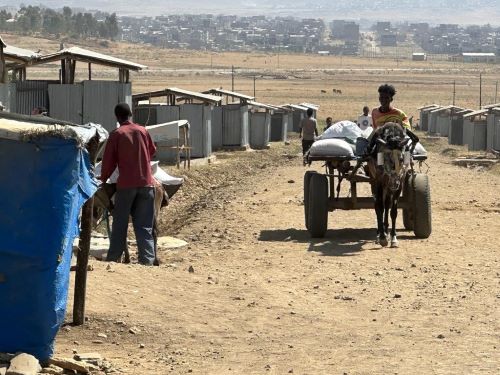A delegation of the European Parliament’s Subcommittee on Human Rights (DROI), led by Isabel Wiseler-Lima (EPP, Luxembourg), travelled to Ethiopia on 17-20 December.
Conflicts and instability persist in several parts of the country and Ethiopia faces a very volatile neighbourhood. Internal conflicts have a heavy impact on human rights and leave a large population in a dire humanitarian situation. Efforts towards peace and reconciliation are currently undertaken to set up a transitional justice system and an inclusive national dialogue.
Visiting Ethiopia more than one year after the signing of the Cessation of Hostilities Agreement – CoHA, DROI Members engaged with a broad range of actors from different backgrounds: civil society, parliamentarians, national and regional authorities, international organisations, academics, to discuss peace and reconciliation, prevention and end of armed conflicts, respect for human rights and accountability.
DROI MEPs also met with victims and witnesses of human rights violations from different geographical areas and internally-displaced people (IDPs). They visited a one-stop-centre providing support to women victims of sexual violence, and the Sebacare IDPs camp in Mekelle in Tigray. They received first-hand information from organisations working in the field, providing support to victims of abuses, and humanitarian assistance to IDPs, returnees and host communities.
Deep concern despite 2022 Pretoria agreement
The delegation acknowledged the scale of the plight of civilians affected by armed conflicts in several regions of the country, despite the 2022 Pretoria agreement. They condemned in the most absolute terms the use of rape as a weapon of war, and called for increased support and justice to the victims – mainly women – including mental health support, prosecution, compensation and redress. They called for urgently addressing malnutrition, especially of children.
MEPs also acknowledged the Federal Government’s commitments in the current difficult context, in scaling up an accountability process. They observed the setting up of a broad inclusive National Dialogue process to which the EU provides financial and political support. They expressed Parliament’s support to Ethiopian human rights actors, including the Ethiopian Human Rights Commission, who are involved in the expected expedite establishment of a victims-centred, impartial and independent transitional justice policy. They also called for a robust and effective presence of empowered women in all these ongoing efforts.
DROI Members expressed their concern at the consequences of the state of emergency on human rights, including a shrinking space for civil society and restrictions to freedom of assembly and expression. They raised questions about the judicial situation and detention conditions of opposition figures, parliamentarians, journalists and civil society activists, who have been imprisoned under the ongoing state of emergency.
The head of the delegation, Isabel Wiseler-Lima (EPP, Luxembourg) declared : “Ethiopians want and deserve peace. Progress on inclusive national dialogue, accountability and transparent transitional justice are essential to restore trust between citizens and communities. Steps on accountability are decisive in the path to restoring partnership between Ethiopia and the EU, in line with the EU political roadmap set in April 2023.”
The delegation was composed by the following Members: Isabel Wiseler-Lima (EPP, LU), Jordi Solé (The Greens, EFA), Ryszard Czarnecki (ECR, PL) and Evin Incir (S&D, SE).

